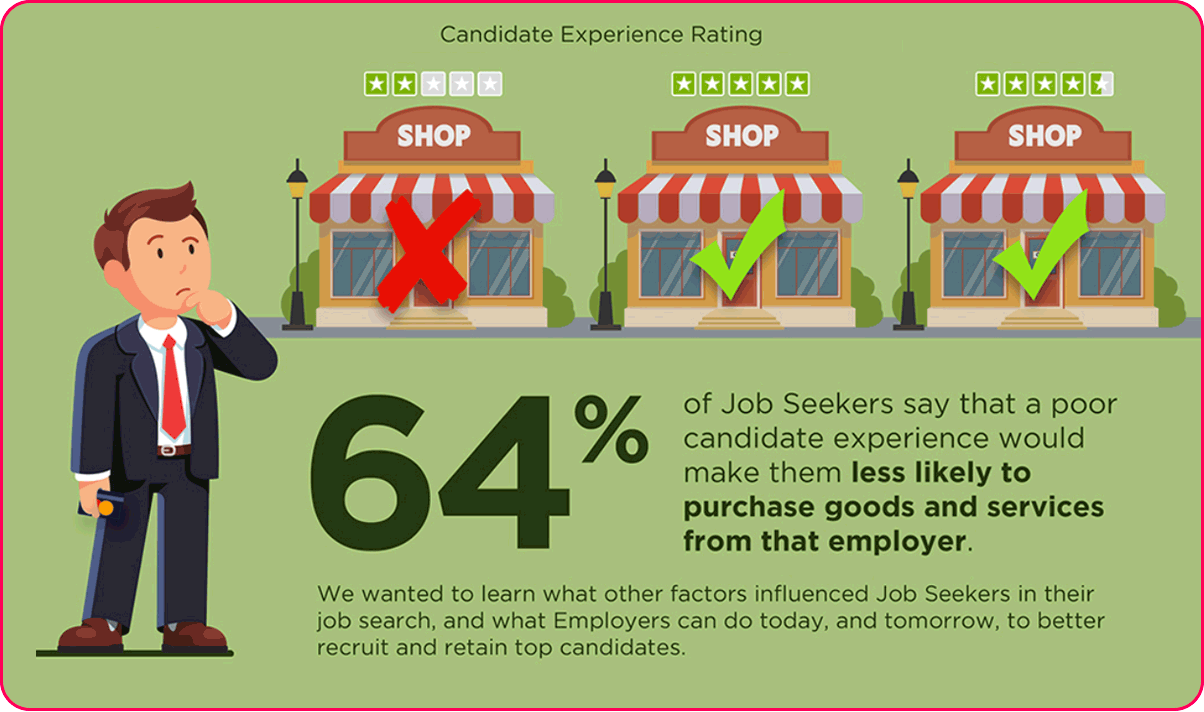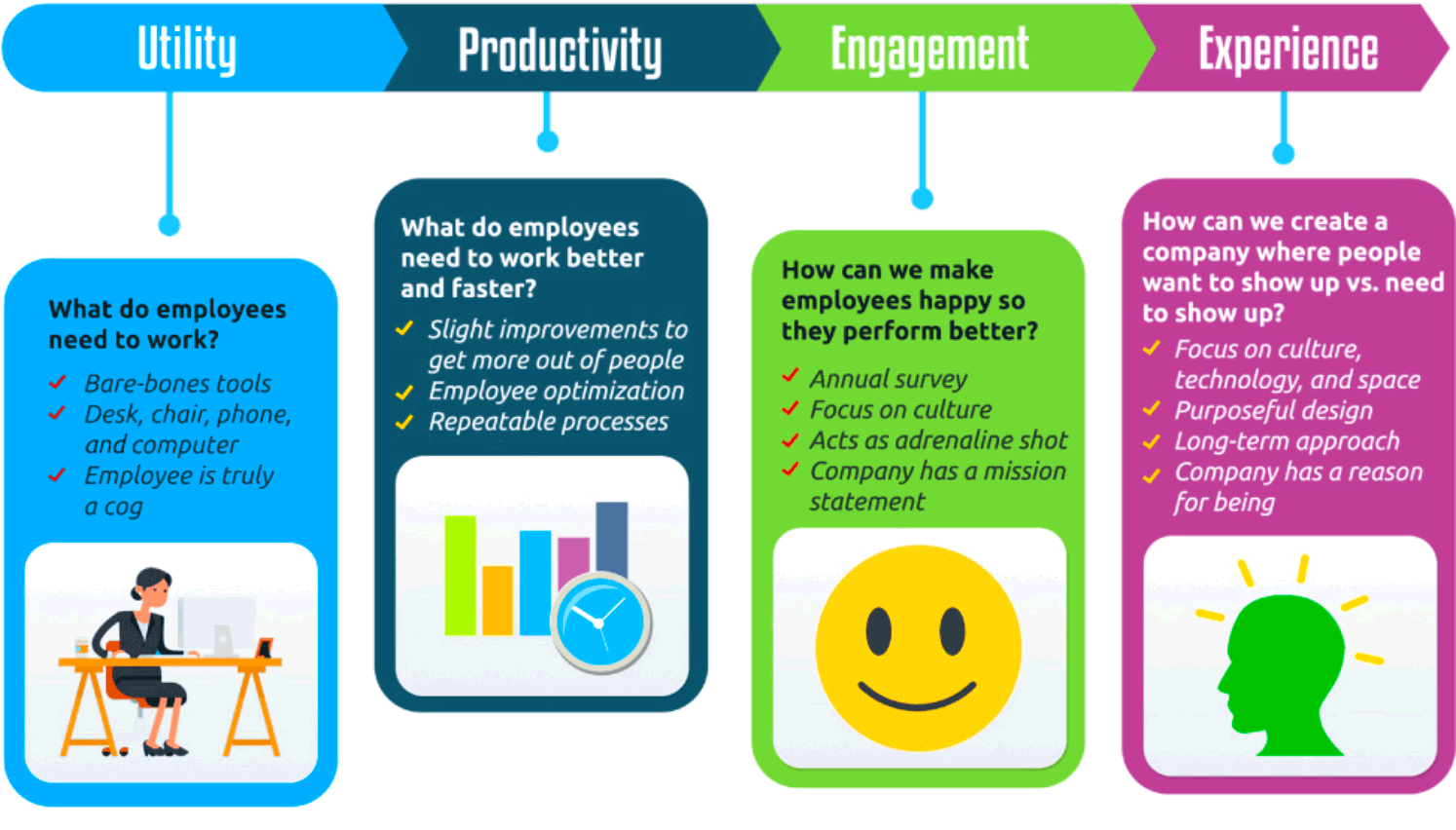So You’ve Created a World Class Candidate Experience
More than a million professionals on LinkedIn have the phrase ‘candidate experience’ in their current job title. It is clearly very much alive, and you don’t need to look far to see relevant categories at practically every industry awards ceremony, celebrating best in class candidate experience strategies. The fallacy is not that of its sentiment, but of what happens after.
Ten years ago, candidate experience was relatively new, and as a result, organisations started to invest time and effort into ensuring their attraction, sourcing and recruitment processes were as closely aligned to proven customer experience principles as possible. A wealth of research has since been produced correlating poor candidate experience with a negative impact on an employer’s brand. The Virgin Media story is one of the more prominent and staggering examples.

Image taken from ‘The Future of Recruiting’ Study 2017
This infographic from The Future of Recruiting highlights some similarly big statistics, with 64% of jobseekers stating that a poor candidate experience would make them less likely to purchase goods and services from that employer. Parallels were soon drawn between recruitment and marketing, which are now broadly accepted as the norm.
The recruitment process today therefore, has become a heavy investment for many organisations. Generally speaking, it is a relationship-centric, personalised and engaging part of the employee lifecycle. Think: direct sourcing teams, advanced assessment techniques, gamification, EVP and Employer Brand, innovative careers sites, Chatbots and robust social media presence. Perhaps a more ‘CX’ relevant example of this investment, is done by a leading UK retailer that offers loyalty card points to their unsuccessful candidates. Big cost, brilliant idea.
Rightly so, the recruitment process has become a critical and strategic business initiative. Why then for so many companies does the focus on experience stop once a new hire has accepted an offer?
76% of HR leaders in a joint Kronos and HCI study said their onboarding processes are underutilized. The remaining 24% said they didn’t have an onboarding strategy at all. It’s a bizarre ratio, especially considering that:
- 4% of new hires leave an organisation after a disastrous first day*
- 22% of staff turnover occurs within the first 45 days*
- 90% of new hires decide to stay or leave within the first six months of employment*
*Source: Bersin by Deloitte – Onboarding Software Solutions. On Ramp For Employee Success
“Employee Experience” doesn’t always feature in the HR job title spectrum, although we think it is gaining momentum (fantastic article from 2017 referencing GE’s journey). Seeing organisations begin to invest in programs and technology to build and maintain engagement after the recruitment process is complete, suggests that the research is resonating.

Graphic from ‘The Employee Experience Advantage” by Marshall Goldsmith & Jacob Morgan
It’s one thing being able to attract top talent with a world-class employer brand, but how do you ensure a consistency of experience once their decision has been made? Getting process, compliance, form completion and task management right is important, but does little to make a new hire feel valued and accepted.
This 2015 study in particular, reveals dramatic improvements in retention, customer satisfaction, engagement and overall job satisfaction for new hires who’s onboarding is centred around their own ‘individual authentic identity’, rather than that of the organisation’s. Much like the recruitment process, onboarding needs to be about the individual more so than the company they are joining.
Chris Jones, head of customer success in EMEA for Enboarder suggests three simple steps you can take to help ensure new employees feel a sense of welcome and belonging, once they’ve signed their offer letter:
- Empower the hiring manager to reach out to the new starter. Don’t do everything for the hiring manager, and don’t make them feel incompetent. Clearly state what they should do, and validate why it is important (perhaps mention that there’ll be less work in future hiring if they deliver a great experience!). Coaching around this area will pay off in the long run.
- Build a buddy program. Many new hires will have questions they don’t feel comfortable asking their manager. Having a buddy (and introducing them before day one) not only allows for questions to be asked, it also provides a friendly face outside of an employee’s new hire group.
- Nail the basics. Make sure that you have organised for someone to meet the new hire on their first day, have a desk allocated and have a laptop ready to go. There’s nothing worse than a new hire feeling that the organisation isn’t ready for their arrival. As we all know, the first-day experience will stick in your mind forever.
So ‘candidate experience’ is crucial, but is only half of the story. It is soon to be joined by ’employee experience’ as part of a broader change in the relationship between an organisation and its employees.
New hires don’t differentiate between the two of course. Candidate experience and employee experience are simply ‘the experience’ of being hired by and working for your organisation, and it is becoming more important than ever to ensure consistency from beginning to end.